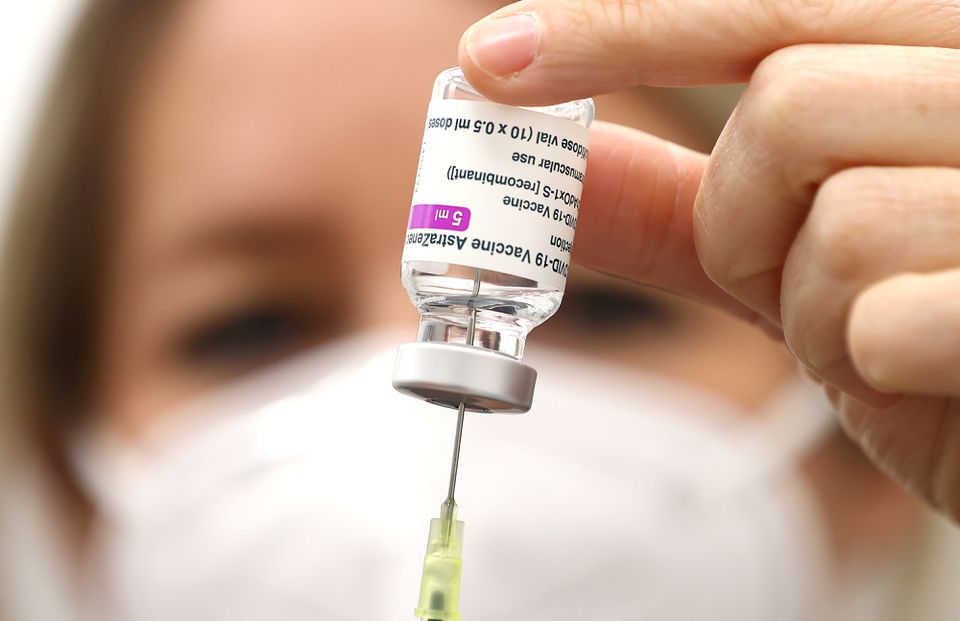
What you need to know about the coronavirus right now
Here’s what you need to know about the coronavirus right now:
Japan sees no impact on Olympics from U.S. travel advisory
Top Japanese officials said on Tuesday they did not expect a U.S. advisory against travel to Japan amid worries about the coronavirus to affect the Tokyo Olympics – due to open in just over eight weeks – and U.S. support for the Games was unchanged.
The U.S. State Department’s “do not travel” advisory and guidance for Japan on Monday did not mention the Olympics specifically but warned against visiting now. Australia has also advised against travel to Japan due to health risks from COVID-19 and disruption to global travel. read more
Masks, restrictions return to Melbourne after new outbreak
Australia’s second-largest city Melbourne reinstated COVID-19 restrictions on Tuesday as authorities scrambled to find the missing link in a new outbreak that has grown to five cases. Home gatherings will be limited to five guests, only 30 people are allowed at public meetings, and face masks will be mandatory in restaurants, pubs and other indoor venues from 6 p.m. (0800 GMT) on Tuesday until June 4.
All five cases are from an extended family across different households and could be traced back to the variant found in an overseas traveller who returned to Melbourne early this month after completing quarantine in the city of Adelaide. Authorities, however, said they had not yet been able to determine how the latest cases contracted the virus from the traveller. read more
Coronavirus variants seen more often in young U.S. children
Young children appear to be significant carriers of more contagious variants of the new coronavirus, such as the ones identified in Britain and in California, according to a new U.S. study. From March 2020 to April 2021, researchers at nine children’s hospitals tested a total of 2,119 COVID-19 patients aged 18 or younger for so-called variants of concern, along with key mutations that help the variants become more contagious or hide from the patient’s immune system.
“In total, we identified 560 of these important mutations, and 75% (420/560) … were in children less than 12 years of age, the population that is currently not eligible for COVID-19 vaccines,” said Jennifer Dien Bard of Children’s Hospital Los Angeles, lead author of a report posted on Monday on medRxiv ahead of peer review. The results provided “clear evidence” of the emergence of variants of concern in pediatric patients across diverse geographies and socioeconomic populations in the United States, the researchers said in their paper. read more
NY, LA send kids back to school; parents clean Mexican schools
New York City and Los Angeles, the two largest U.S. public school districts, on Monday announced plans to fully reopen schools, part of a parent-led nationwide trend amid a sustained decline in COVID-19 infections and increase in vaccinations. read more
Across Mexico, teachers and parents were sprucing up vandalised schools ahead of the nationwide reopening on June 7. Since the coronavirus pandemic triggered the first nationwide lockdown in March 2020, between 40% to 50% of all Mexican schools have reported vandalism or theft, according to trade union officials. read more
What is the ‘black fungus’ hitting India’s COVID-19 patients?
A rapid rise in cases of mucormycosis, also known as black fungus, has added to the challenges faced by India’s healthcare system as it deals with a massive second wave of COVID-19 infections.
A fungal infection that causes blackening or discoloration over the nose, blurred or double vision, chest pain, breathing difficulties and coughing blood, the disease has a close link to diabetes, and conditions which compromise the immune system. Experts have said that an overuse during the COVID-19 pandemic of certain drugs which suppress the immune system could be causing the surge. read more
Our Standards: The Thomson Reuters Trust Principles.






